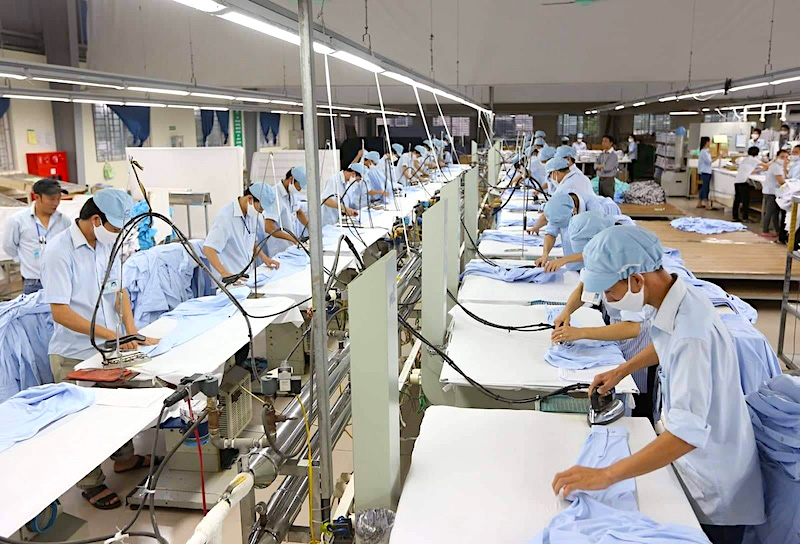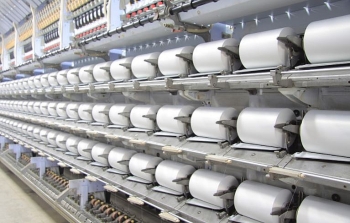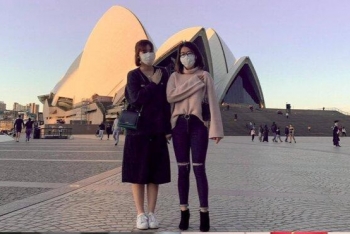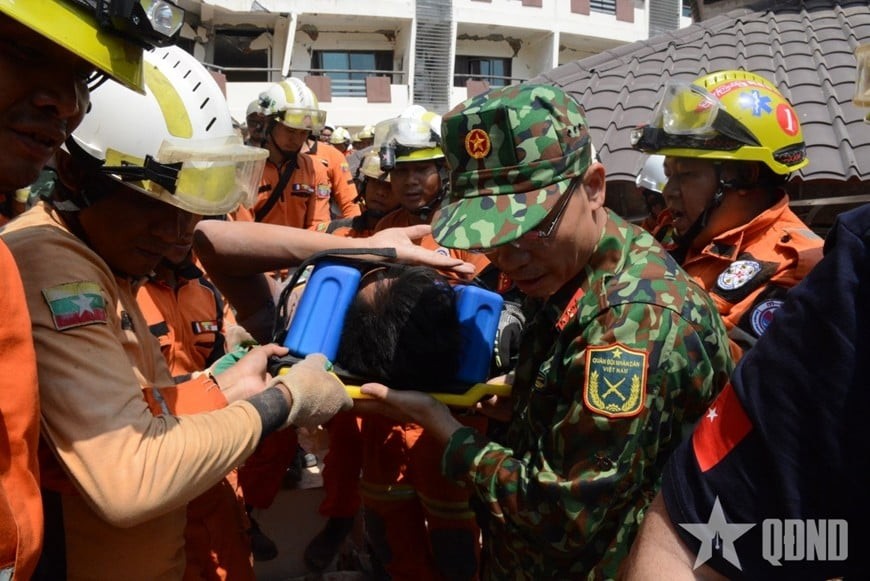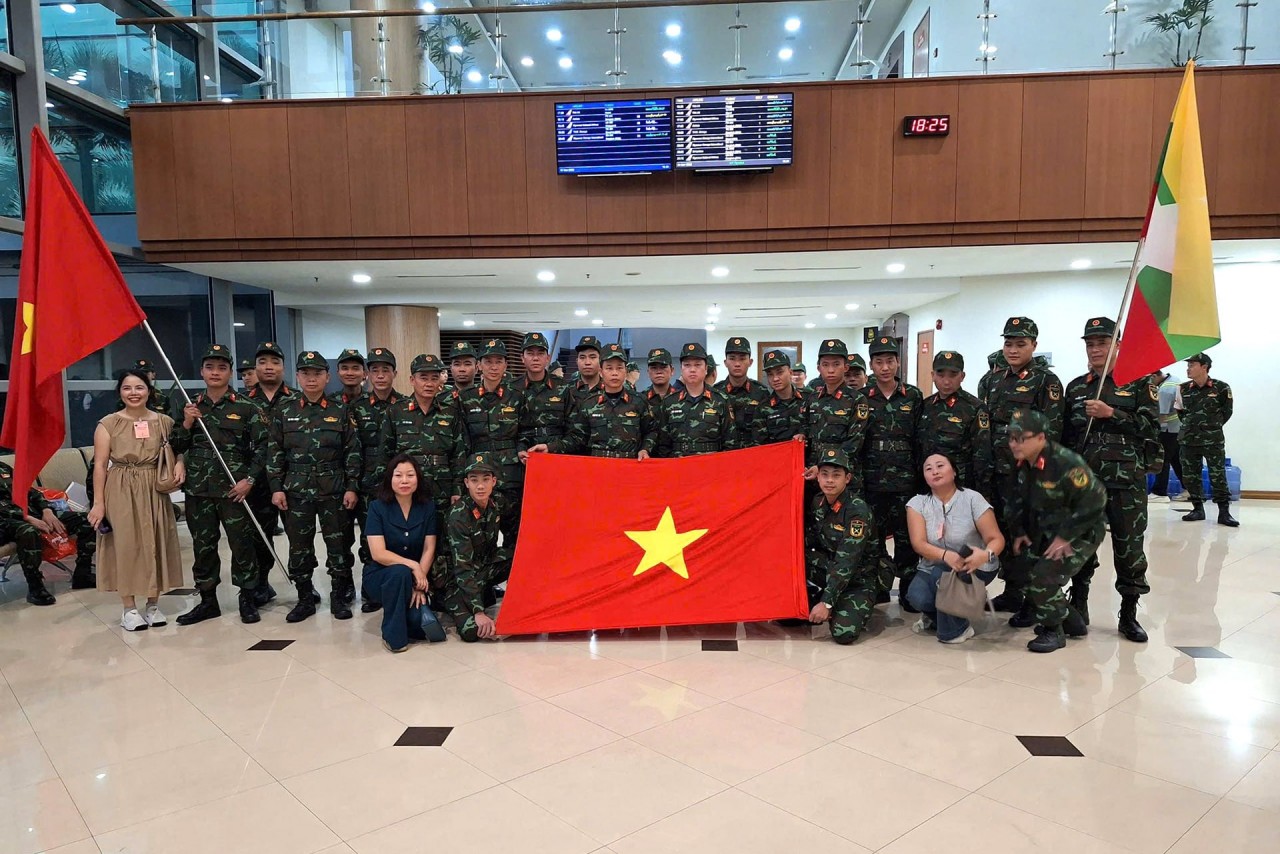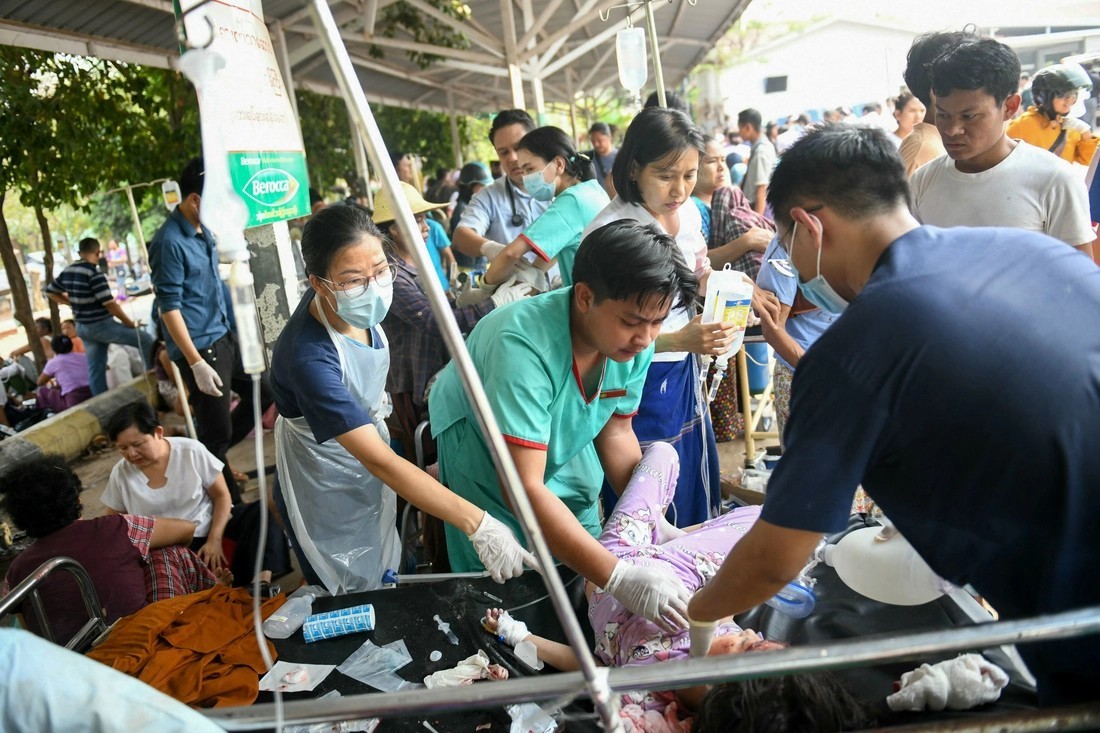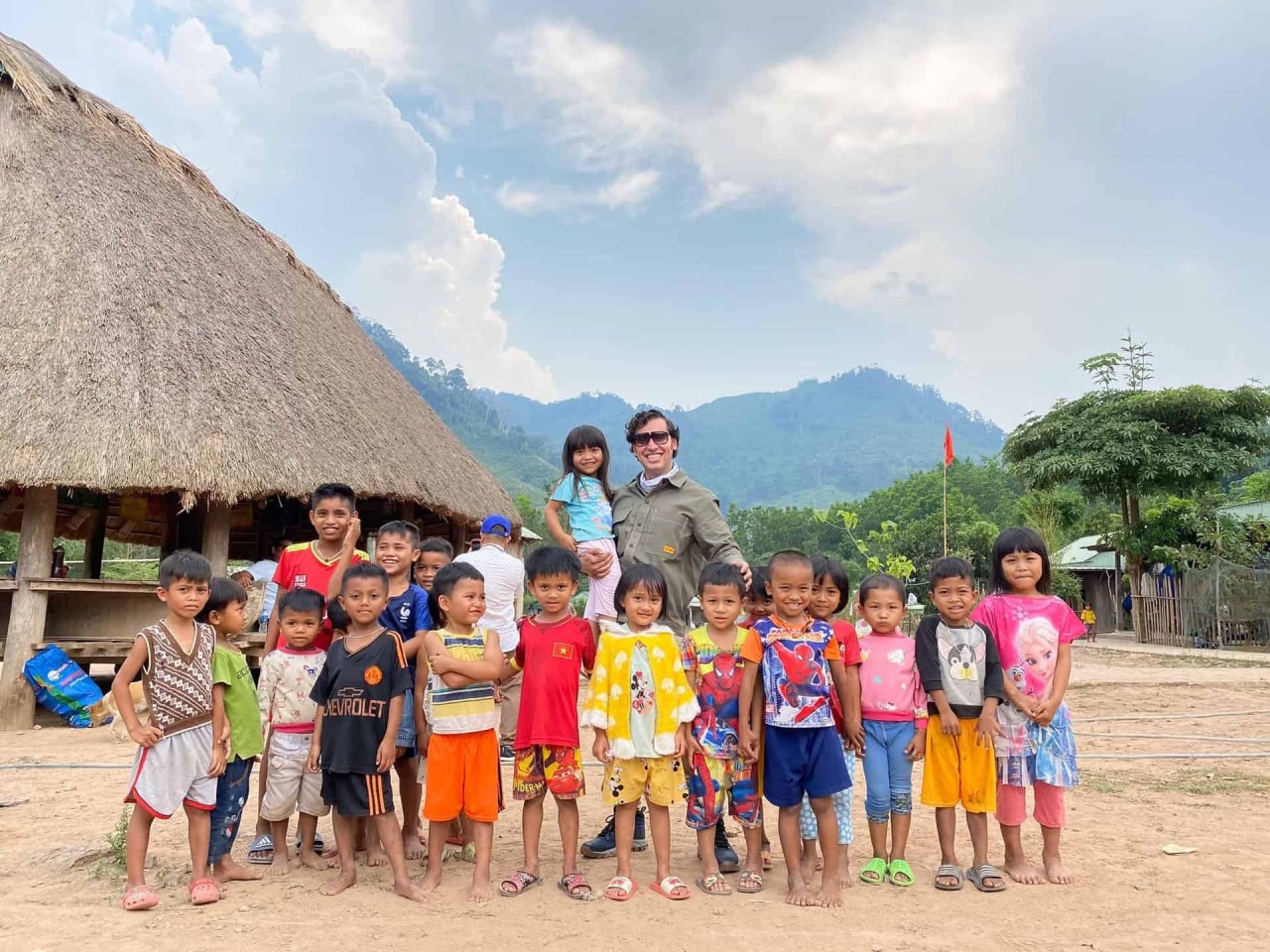A German’s Homesick For Vietnam Amid COVID-19 Pandemic
This is Stefan's recurring business trip over the past two years. He is a development consultant on a European Union (EU) project in the capital city of Naypyidaw. Stefan planned to return to Vietnam after two weeks.
On the evening of March 21, Stefan read the notice that Vietnam would temporarily suspend entry to all foreigners, starting the day after to prevent COVID-19 from spreading.
"That means I couldn't go home as planned. For how long, maybe another month," Stefan told himself. He quickly called his wife to report the situation, asking her to encourage the children that he’ll be back soon.
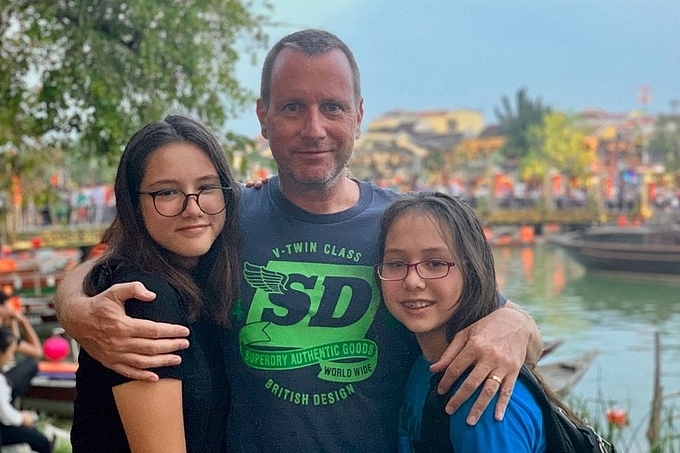 |
| Stefan and his two daughters in Hoi An in 2019. |
In Naypyidaw, Stefan rents a hotel to stay. He has been restraining himself from going out, complying with the "work from home" rule when Myanmar imposed a physical distancing order to prevent the spread of COVID-19. However, his work is still going as normal, as his partners have also switched to online communication.
In the first few weeks after Stefan knew that he couldn't return to Vietnam as planned, every morning when he woke up, he had to familiarise himself with the absolute silence of the room. This is considerably hard for someone who has always been used to the family's daily tumultuous atmosphere when the children prepare to go to school. Stefan misses the moments he "gossiped" with his children, one 14 and one 12 years old, on their way to school or while they wait at the bread shop. He also remembers the smell of iced milk coffee at a coffee shop where he used to spend the morning with his wife before going to work.
Every early evening, Stefan looks forward to video-calling with his family in Vietnam. The two girls race to tell their father stories at home and their online learning, asking Stefan about homework as usual. He always listens carefully to guide them but the distance does make things more difficult, as the father couldn't kiss and say good night to his children as he used to.
Although he doesn't need to worry much about the risk of virus infection as Myanmar people and government have taken many anti-epidemic measures, Stefan is always insecure about his "strange" lifestyle. He couldn't even remember how many Sundays have passed that he had to run alone when he should have been running with his wife on familiar routes in Ho Chi Minh City, where they can then find a place to eat, sit and watch the sunset in the sky.
Meanwhile, in Vietnam, Luong, Stefan's wife, has been constantly looking for information to help her husband get home early. They even discussed flying back to Germany under the support of the German government but Stefan said that it is not feasible. While it is still unknown when the countries resumed the air route, that option only "pushes him further away from Vietnam", as it would only take him two hours to get home from Myanmar if there was a flight.
There were days Stefan tried to calm himself down to write books and complete his unfinished studies. He comforted his wife that "thanks to COVID-19", he had learned to cook some Vietnamese dishes such as stir-fried water spinach, grilled beef in piper lolot leaves or beef noodle soup. Stefan is now confident to support Luong in the kitchen when he gets back home.
There have been times that Stefan felt confused as he realised that the stuck could no longer be counted by weeks, but it could last for months, due to the complicated situation. His wife once suggested contacting the Vietnamese Embassy in Myanmar for help. However, Stefan was not very confident about this plan, because he is not a Vietnamese citizen who needs to be "rescued". Nevertheless, Luong still stuck to her plan but it didn't work.
However, knowing that his family is still safe in Vietnam no matter how the pandemic is spreading around the world made Stefan relieved. The total nCoV infections in Vietnam remained low as the country had not recorded any new infections in the community for three months and was recognized internationally as one of the few countries that had effective control of COVID-19.
In June, the news that the Vietnamese government was considering reopening international routes with some countries in the region offered a ray of hope that Stefan could go home. He also expected that there could be a safe flight to revive the tourism industry between Vietnam and Myanmar, as the country also recorded low COVID-19 infections, similar to Vietnam's figures.
While Stefan was considering whether to transit in Laos, Cambodia or South Korea, to return to Vietnam, he got the second shock: Da Nang had the first community-infected case after 99 COVID-free days.
"I understand that the restriction will not be lifted soon, even though I have been in Myanmar for five months," he said.
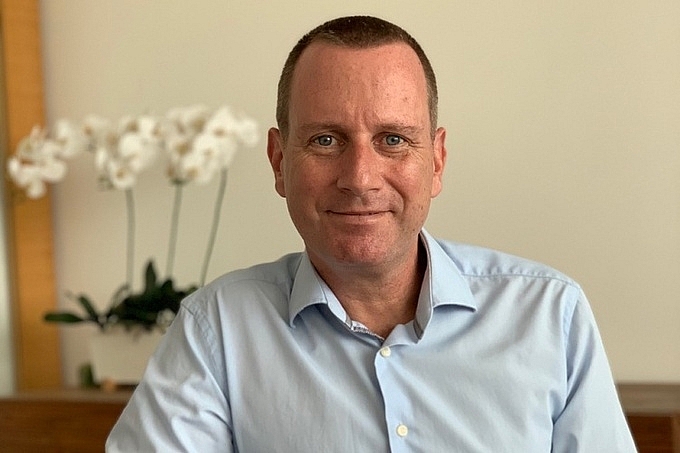 |
| Stefan Hell at his office. |
However, Stefan agrees that it is reasonable for the Vietnamese government to organize flights to assist people abroad based on domestic isolation capability. He believes that those who are not Vietnamese citizens, like himself, should not be a burden to the whole system. Therefore, Stefan supports Vietnam to charge testing and quarantine fees, expanding the beneficiaries of the support to foreigners with Vietnamese spouses. If the centres are overloaded, they may be allowed to pay for quarantining at some hotels or resorts. Stefan learned this from a colleague who married a Thai wife and was also stuck in Myanmar, who had just been approved by the Thai government to return to Bangkok in mid-August.
With over 20 years living in Vietnam, Stefan now has no feeling of being a "foreigner". He can speak Vietnamese with his wife and children, can eat many "unique" dishes of Vietnam, loves Tet holidays, and most of all he wants his family to permanently reside here.
In the latest video call, Stefan could not help being sad as he realised that his two girls had somehow changed, at least with their hairstyles.
"I'm homesick. Looking forward to seeing my family again is my first thought every morning," Stefan said.
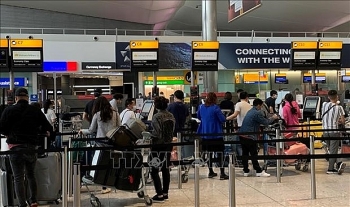 | Nearly 300 citizens repatriated from UK, Germany, Switzerland, Denmark and Czech Vietnam Airlines on August 6-7 conducted a special flight bringing home 280 Vietnamese citizens stranded in the United Kingdom and various parts of the European Union ... |
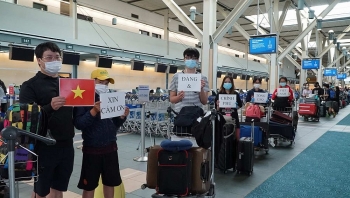 | More than 80 flights brings home over 21,000 citizens from 50 countries, territories More than 80 flights have been operated so far, bringing home safely more than 21,000 Vietnamese citizens with majority of them were people under 18, ... |
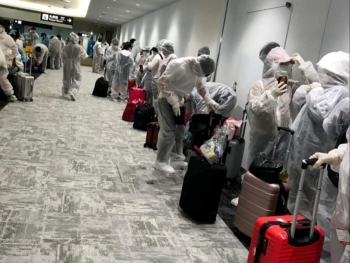 | Citizens brought home safely from Japan; tenth COVID-19 related fatality reported A total of 220 Vietnamese citizens (5 people transited from Mexico) were repatriated home safely from Japan on August 5 by a flight of budget ... |
Recommended
 Handbook
Handbook
Vietnam Moves Up 8 Places In World Happiness Index
 Handbook
Handbook
Travelling Vietnam Through French Artist's Children Book
 Multimedia
Multimedia
Vietnamese Turmeric Fish among Best Asian Dishes: TasteAtlas
 Handbook
Handbook
From Lost to Found: German Tourist Thanks Vietnamese Police for Returning His Bag
Popular article
 Handbook
Handbook
Prediction and Resolution for the Disasters of Humanity
 Handbook
Handbook
16 French Films To Be Shown For Free During Tet Holiday In Vietnam
 Handbook
Handbook
Unique Cultural and Religious Activities to Welcome Year of the Snake
 Handbook
Handbook

